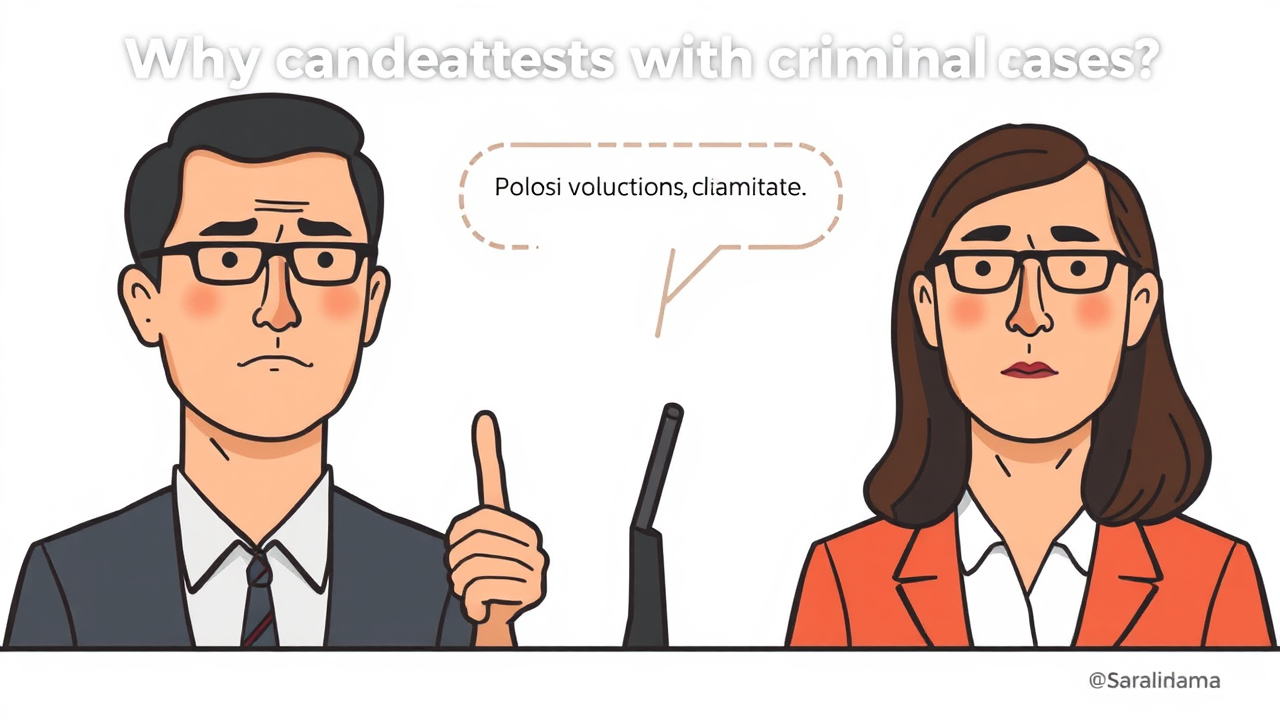Political parties in Bihar have defended their decision to field candidates facing criminal charges by providing explanations mandated by the Election Commission and Supreme Court guidelines. A 2020 Supreme Court directive requires parties to disclose detailed information about such candidates, including the nature of offences and reasons for selection. The Election Commission reinforced this by ordering publication of this information on party websites, social media, and newspapers. Multiple parties contesting the Bihar Assembly elections have complied, though often using repetitive or vague justifications. The Janata Dal (United) posted details of 25 candidates with pending cases, citing popularity and party worker recommendations. The Bharatiya Janata Party dismissed allegations as politically motivated or baseless for many of its candidates facing charges. The Rashtriya Janata Dal used nearly identical language for around 80 of its 143 candidates, emphasizing their activity and popularity. Jan Suraaj, despite promising credible candidates and a break from old politics, gave the exact same reason for all 34 candidates with cases against them. The Congress highlighted senior leadership roles and public service records for its candidates facing charges. Parties consistently justified their choices by pointing to local demand, social work, prior electoral success, and lack of better alternatives within their ranks.

Supreme Court Order and Party Compliance
In February 2020, the Supreme Court directed political parties to publish comprehensive information about candidates with pending criminal cases. The order mandated disclosure of the nature of offences and reasons for their selection on party websites. Following this, the Election Commission issued orders making it compulsory for parties to publish such information in newspapers and on social media platforms. Parties were also required to explain why individuals without criminal backgrounds could not be selected. During the Bihar Assembly elections, political parties complied with these directives by posting declarations, though the quality and detail of explanations varied significantly. The Janata Dal (United), contesting 101 seats as part of the National Democratic Alliance, published details of 25 candidates with pending criminal cases on its website. Other parties including the Bharatiya Janata Party, Rashtriya Janata Dal, and Congress similarly made declarations available through their official channels.
Justifications by Major Political Parties
The Janata Dal (United) defended controversial candidate Anant Singh from Mokama, who faces at least 50 cases dating back to 1979, including four murder-related charges. The party described him as a four-time legislator and philanthropist whom poor people turn to during trouble. For other candidates, the party cited flood relief work, women's empowerment advocacy, and secular credentials. The Bharatiya Janata Party labeled cases against its candidates as politically motivated or baseless. For Siwan candidate Mangal Pandey, facing rioting and attempt to murder charges, the party cited selfless social work. The Rashtriya Janata Dal used remarkably similar wording across approximately 80 candidates, describing each as very popular, very active, and the best available choice. The Congress emphasized senior leadership positions, organizational roles, and deep understanding of local issues for its candidates facing charges, including two-time legislator Shakeel Ahmad Khan.
Jan Suraaj and Repeated Explanations
Prashant Kishor's Jan Suraaj party, which had promised strong and credible candidates representing a departure from traditional politics, fielded 34 candidates with criminal cases. In a social media post on October 27, the party provided identical explanations for all 34, describing each one as a good social worker who has been raising the voice of weaker sections for a long time. The party stated that local people demanded these individuals be selected as candidates. This standardized justification drew attention given Jan Suraaj's campaign promises. Meanwhile, violent incidents marred the otherwise peaceful election campaign. A clash in Mokama seat resulted in one death, leading to the arrest of Anant Singh. The incident occurred just one day before campaigning ended for the first phase. Despite the Supreme Court directive aiming for transparency, many parties appeared to use formulaic language rather than providing substantive, individualized reasons for fielding candidates with serious criminal allegations.
Source: Link
